Reading fun facts about Spain is not quite the same as traveling around Spain. There’s no better way, however, to fuel your wanderlust and get a basic comprehending of the vibrant culture there. And the Spanish culture is definitely something special.
The following 20 Spanish facts are handpicked carefully to not only entertain you but also to give an idea of what living in the sun-kissed country really is. They are mostly on the fun side, though, so don’t expect boring statistics about olive oil production, longest rivers (Ebro river), or renewable energy.
Are you ready for food fights, afternoon siestas, and a little bit of nudity?
Let’s go!
Spain discovered oranges and chocolate

Well, not exactly ‘discovered’, but they did spread them around the world. Sweet orange was taken to Europe in the late 15th century by Italian and Portuguese merchants. The Spaniards, however, took the fruit all the way to Latin America, Mexico, and Florida. The first orange tree in the Americas is considered to be planted by Christopher Columbus on his second voyage in 1493.
The chocolate went the other way. On an unknown date in 1520, the first shipment of cocoa embarked on a voyage from the port of Nueva España to the Spanish coast. Although bitter cocoa wasn’t that popular at first, once Spaniards began to sweeten it with sugar cane, it became a high commodity and a favorite snack of the noblemen.
New Year’s grape

There are as many New Year’s traditions as there are countries on Earth. While in my home country, we watch the president giving a speech and eat banitsa with fortunes, people in Ecuador burn scarecrows while the Danes break some plates. Spain, of course, has its own quirky tradition.
At midnight, the clock on Madrid’s Puerta del Sol first ring four times (which you’re supposed to ignore), and after a slight pause, starts a series of 12 chimes — one for each month of the new year.
If you’re a real macho, you have to make sure you eat a grape for every chime. While it sounds easy, there’s just a couple of seconds between the dongs, and you’re supposed to chew and swallow the whole thing, not just put it in your mouth. If you succeed, you’re about to have a great year. If not – well – you have a whole year to practice.
Spanish is everywhere

I don’t think you’ll be surprised to learn that the Spanish language is the second most spoken mother tongue in the world. I mean, we all know Spaniards used to travel a lot and spread their language and culture all around the globe. With 460 million native speakers, only Chinese Mandarin can top it (1.3 bln).
The fun Spanish fact here is that not all people in the country of Spain speak Spanish. Actually, only 72% of the Spaniards consider Spanish to be their first language. In Galicia, they speak Galician, Basque is spoken in the Spanish Basque Country, and Catalan in Catalonia and the Balearic Islands.
Nudity is ok

One of the most interesting facts about Spain is that it’s pretty hot out there. Wait, you already know this, and it’s not an interesting fact at all? I agree; the real fun fact is that since it’s so hot, there are currently no nudity laws in the country. You can go naked in every public area, and you won’t be arrested (don’t quote me on that, though).
I know that over the pond, there’s a cliche about Europeans that we love to go naked outside, but honestly, no country has as relaxed nudity laws as Spain. And even in Spain, I’ve never seen naked people in the park or on a plaza. The beaches, though…
Spaniards live a lot

I don’t know if it’s their relaxed way of life, the sunny weather, or the fantastic food, but Spain continues to be among the top countries for life expectancy. They are even predicted to have the longest life expectancy by 2040, beating long-time front runners – Japan. According to this Predimed study, the main reason is the olive oil-rich Mediterranean diet that combats amazingly obesity, high blood pressure, and blood sugar. If you ask me, the food definitely plays its part, but the key to immortality is the combination with an everyday siesta.
See Also: Fun Facts About Barcelona
Spain gave the first modern novel to the world

As far as facts about Spain goes, this one is a bit controversial. Many books claim to be the first novel, with Lady Murasaki’s The Tale of Genji (11th century) the most widely accepted to be the one.
However, Miguel de Cervantes’s masterpiece Don Quixote is considered to be the most influential works of literature ever published and the first modern novel.
A story that basically invented fiction giving the reader a chance to see the world through its eccentric characters. Many people argue that Don Quixote is the most immense contribution Spain has made to the world. Considering the fact there are monuments of the peculiar knight (and his loyal squire Sancho Panza) pretty much everywhere, I tend to agree.
Spain is UNESCO rich

With 48 UNESCO World Heritage Sites, Spain ranks second in Europe and third globally (behind Italy and China). The most famous ones are the Alhambra fortress in Granada, the works of Antoni Gaudi (including Sagrada Familia) in Barcelona, and the pilgrimage route – Camino de Santiago.
See Also: Top 20 Fun Facts About Greece
Spaniards fight with tomatoes

Well, at least once a year, they do. Every August, one of the world’s wackiest festivals – La Tomatina turns the small Valencian town of Buñol into the biggest food fight playground.
The festival is incredibly popular, attracting nearly 40,000 people every year. While the fight lasts only about an hour, more than 150,000 tomatoes are used, turning the streets of Buñol into a scarlet Venice.
The story says that the festival’s origin was in 1945 when a street fight broke out between a rowdy local and a group of young people. Next year they repeated the battle (this time on purpose), and a tradition was born.
The Tooth Fairy is a mouse

This is one of the most peculiar facts about Spain and also one of my favorites. You know how in the English-speaking countries (and Denmark), when kids lose a tooth, they leave it under their pillow, and during the night, the Tooth Fairy replaces it with cash? Well, in Spain it’s similar, but instead of a fairy, they have a mouse. Named Ratoncito Pérez, the little vermin was part of an 1877 “Cuentos, oraciones, adivinanzas y refranes populares” story but became part of the Spanish folklore in 1894 when Luis Coloma was contracted to write a story for King Alfonso XIII, who had just lost his tooth at the age of 8.
Ratoncito Pérez is the designated tooth fairy in most Spanish-speaking countries, but once again, not everywhere in Spain itself. In Catalonia, there are “Els Angelets” (little angels), while in the Basque Country, the mouse is replaced by Mari Teilatukoa (Mary from the roof).
Spanish anthem has no words
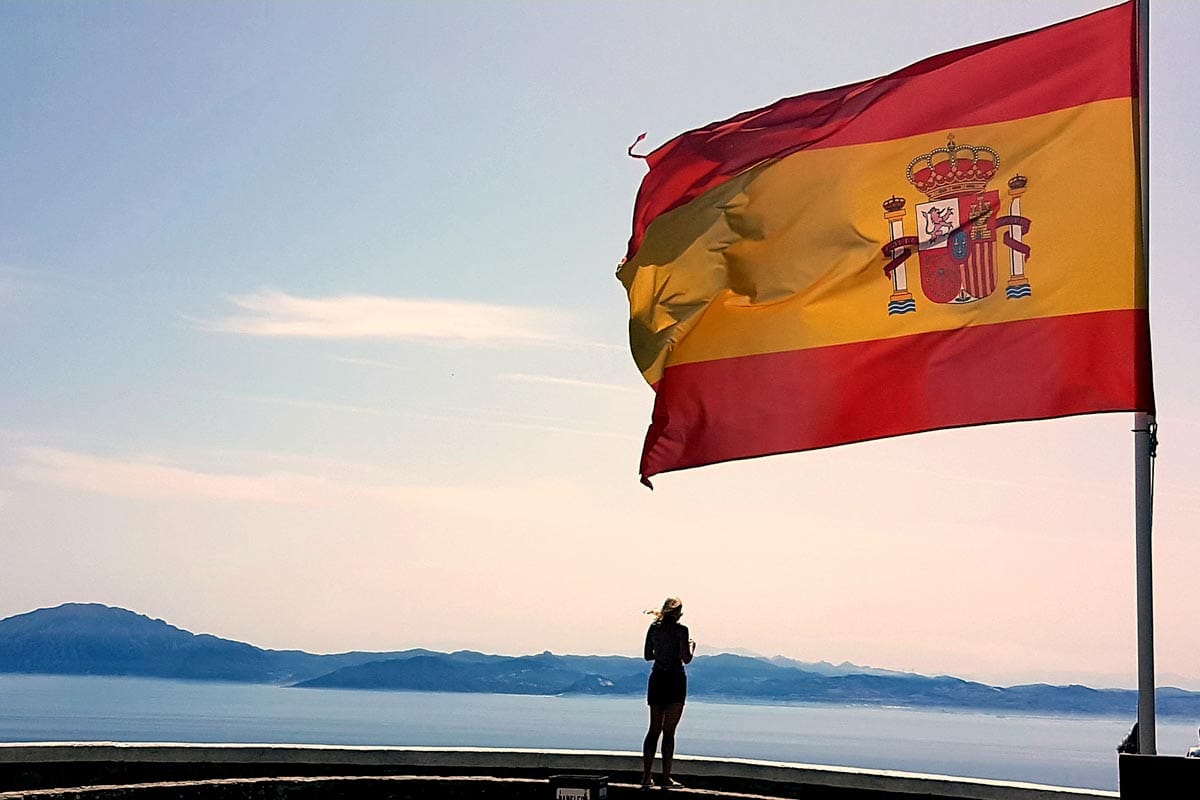
If you listen to anthems only on the Olympics, this may not sound that bizarre to you, but in reality, most national anthems do have lyrics. In fact, besides “Marcha Real”, only the anthems of Bosnia and Herzegovina, Kosovo, and San Marino have no official lyrics.
See Also: Top 25 Fun Paris Facts
Spain is not just beaches

This is not one of the most mind-blowing facts about Spain, but I’m pretty sure you don’t know it. It’s well-known that Spain has plenty of beaches, right (around 8000)? Occupying most of the Iberian peninsula and even boosting a few islands, that’s not that big of a surprise.
But do you know that Spain is also incredibly hilly? It’s actually the second most mountainous country in Europe after Switzerland. There are eight major mountain ranges within Spain – The Pyrenees, Cordillera Cantabrica, Sistema Iberico, Sierra de Cuenca, Serrania de Cuenca, Montes de Toledo, Cordillera Betica, and Sierra Nevada. The highest mountain is El Teide (3,718m/12,198 ft.), which curiously enough is not even situated on the mainland but on the Canary Islands.
Spain is a bar nation

In the current turbulent times, bars come and go incredibly fast, so I don’t claim immense accuracy here, but apparently, Spain holds the European record for being home to the most bars per inhabitant. Andalucía alone hosts as many bars as Ireland, Denmark, Finland, and Norway combined.
And Andalucía is home to just a fifth of the country’s bars that are close to 300,000!
The Land of Rabbits

No, there aren’t vast amounts of rabbits anywhere in Spain today, but once there might have been. The name Spain comes from the Roman Hispania. While the origin of Hispania is much disputed (i mean, no one wants to be the rabbits’ land, right?), it’s considered to derive from Punic and translate to “island of the hyrax“, referring to the European rabbit.
See Also: Barcelona in December
Spaniards live on a different rhythm
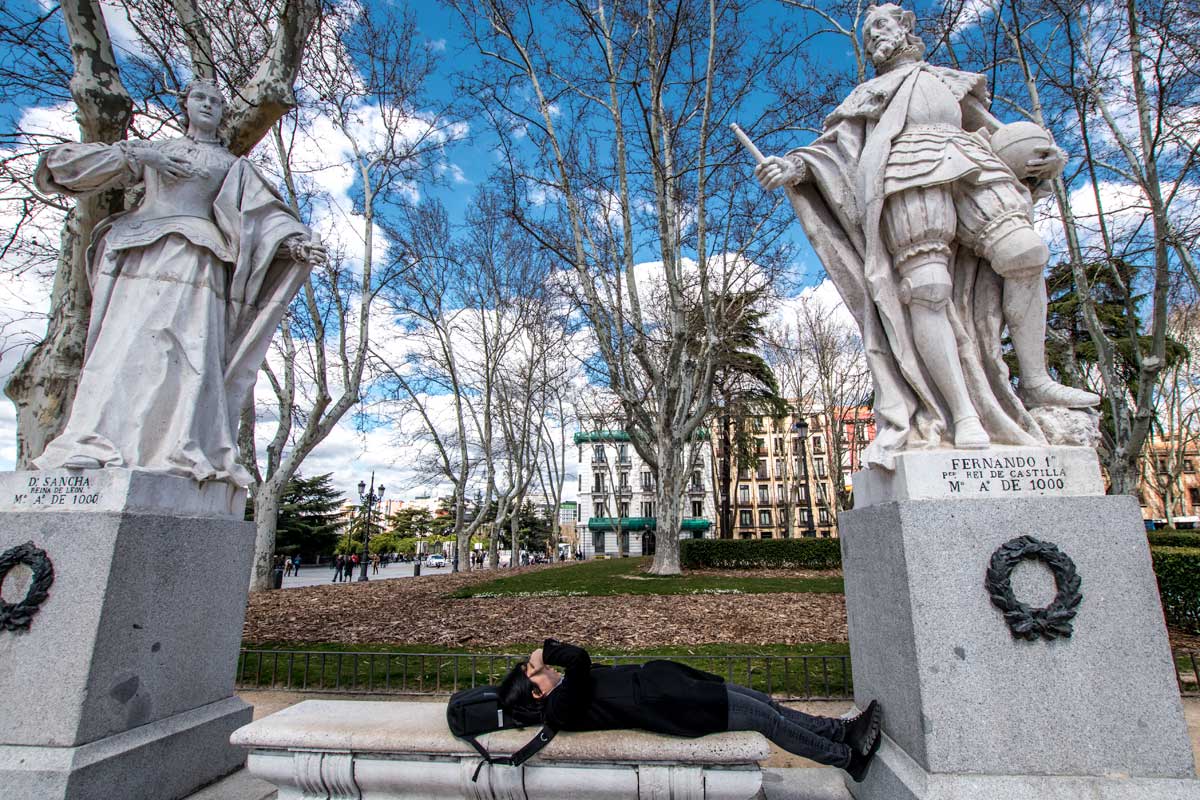
Spaniards culture has some undeserved reputation for being lazy. The world-famous siestas (afternoon naps) portrait Spainards as people who prefer chilling instead of working. The truth is, however, they just have a different rhythm than most Europeans. Lunch is typically between 1 and 3 pm, and dinner around 10 pm. This style of life doesn’t make them lazy, however. The country’s massive sports success (football, tennis, motorsports) and world-famous brands (ZARA, Mango, SEAT) are the living proof of that.
Madrid is the physical center of Spain
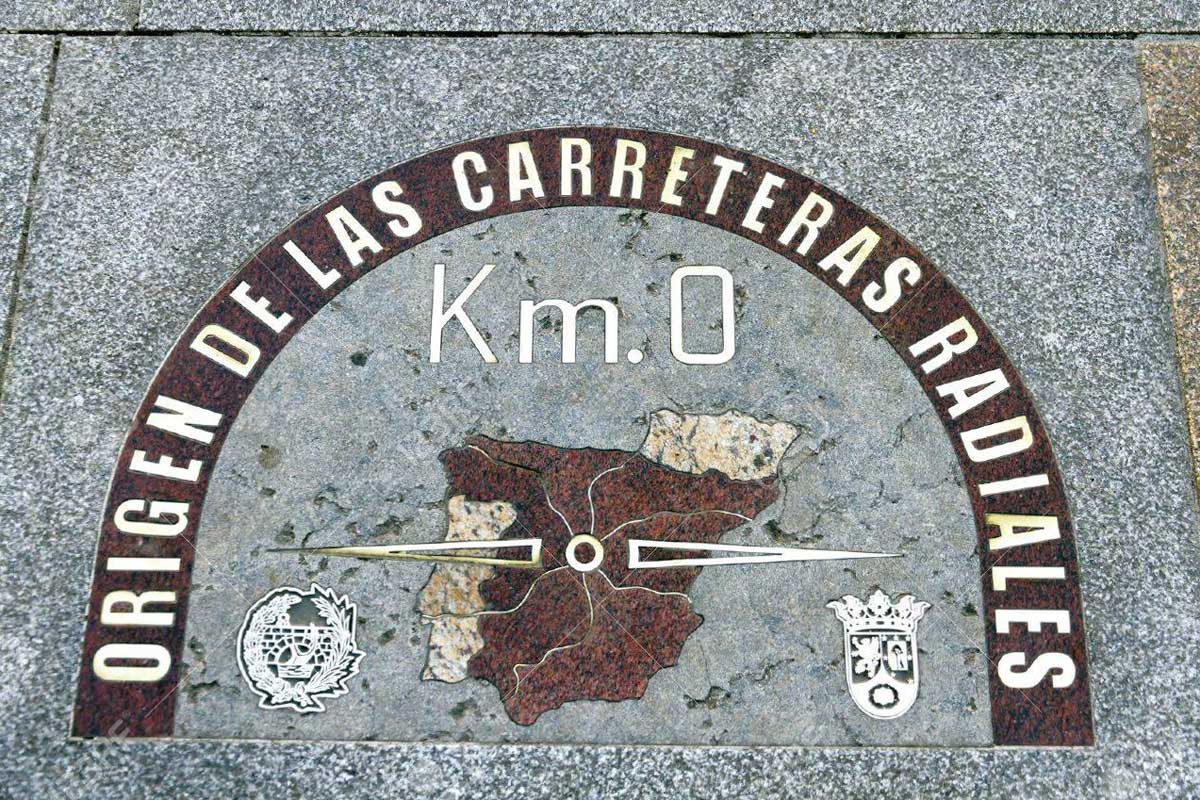
We continue the fun facts about Spain with something peculiar. Do you know that Madrid is not only the administrative center of Spain but also the physical one? Located on Puerta del Sol, a small inlaid stone marks kilometer 0 – the point from which all distances are measured in Spain and the country’s geographical center.
Placed in 1950, the plaque was mistakenly turned around in 2002 but fixed again in 2009.
See Also: The most Curious Facts About London
Spain has the second biggest tourism industry in the world
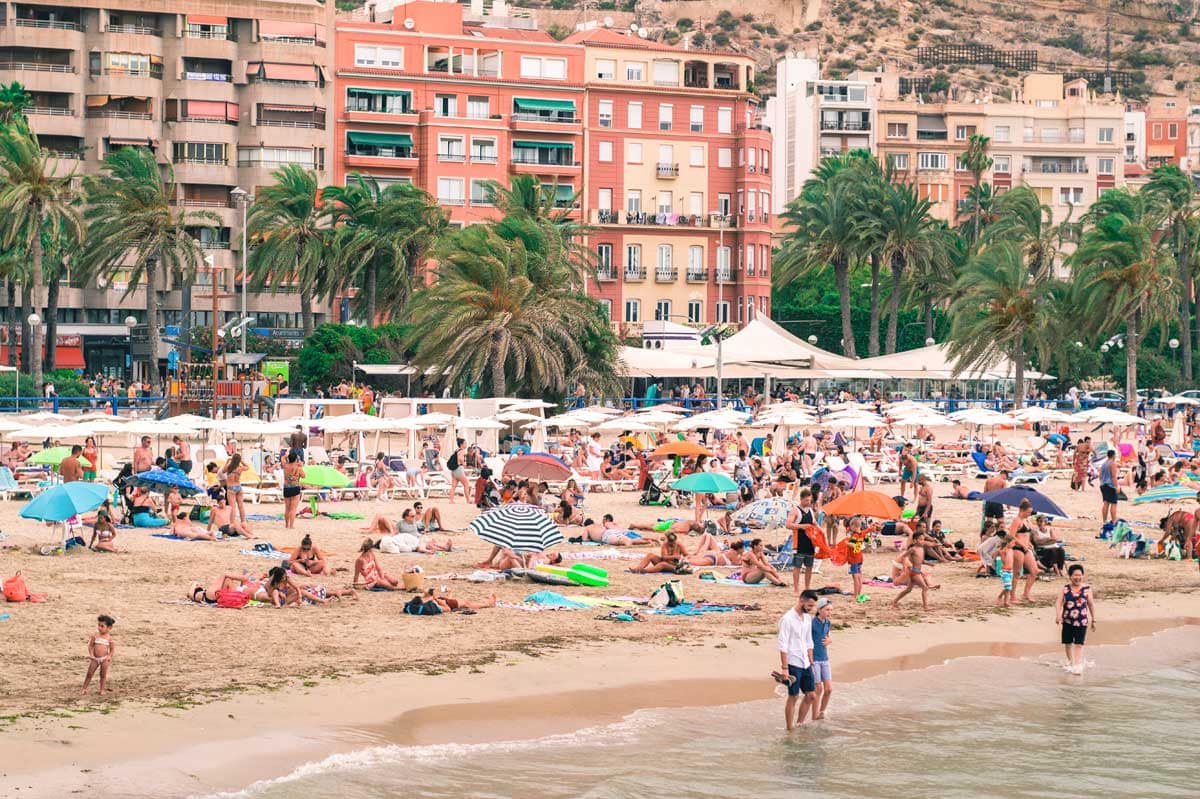
I have to admit I didn’t expect that one. I know Spain is one of the most visited countries in the world, but I didn’t realize they are the second most visited country on the globe (just behind France). More than 83 million tourists visited Spain in 2019 (2020 does not count), beating the United States, China, and Italy.
Now, I know Spanish beaches are fantastic and everything, but honestly, I didn’t think they can beat the Statue of Liberty, the Great Wall of China, and the Colosseum.
Bull running
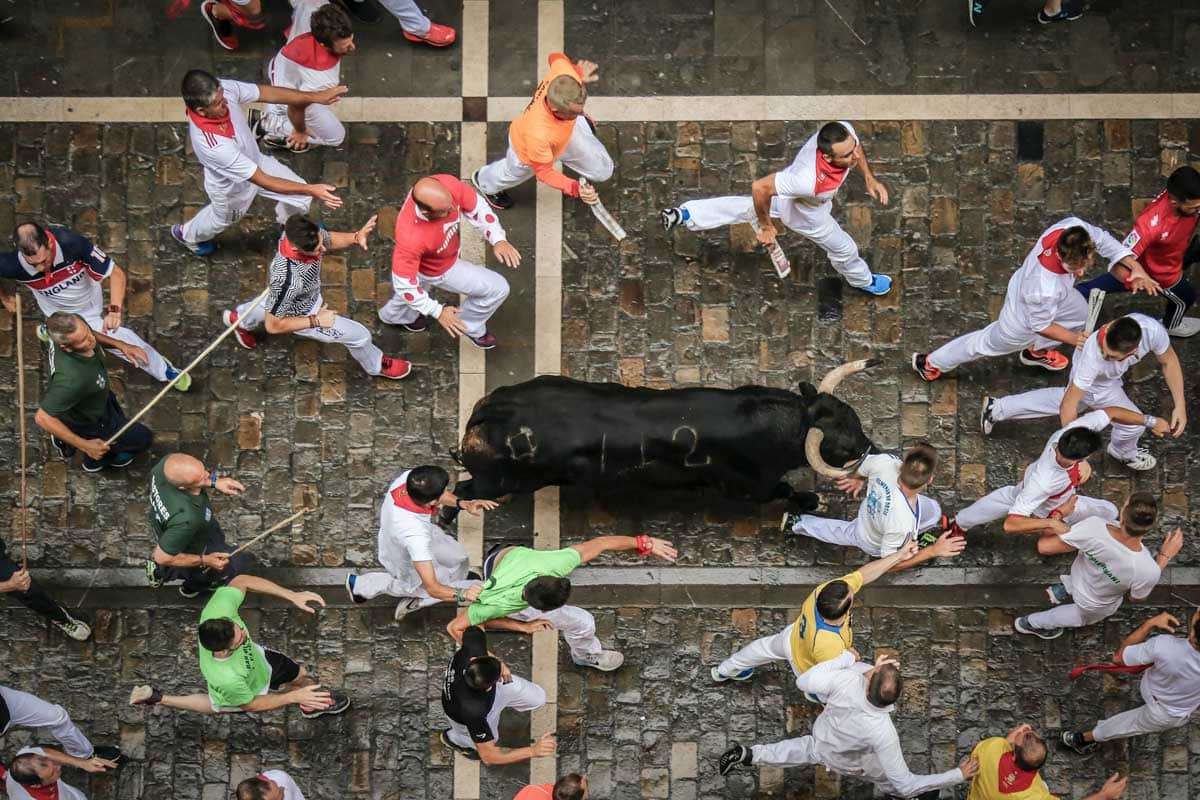
This is one of the craziest Spanish facts. You probably know the bull is Spain’s national animal. You may also be familiar with the corrida (bullfighting). But do you know that they held a nine-day festival every year in Pamplona where bulls are let go on the streets to chase people. No, not people dressed in bull costumes, real – live – bulls!
Bull-running is one of the most cherished Spanish traditions dating all the way back to the 14th century. Even though there were countless injuries and even 15 deaths, close to 20,000 adventure seekers run the race every year
Oldest restaurant in the world
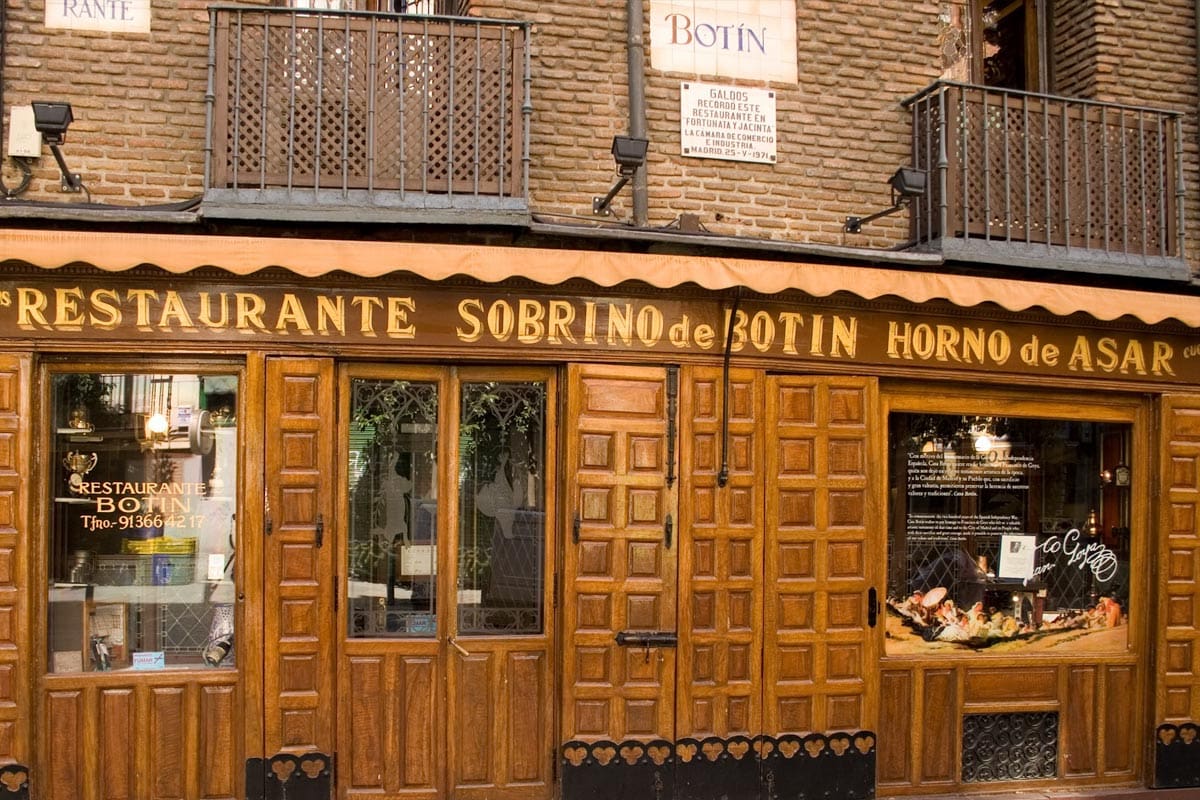
We continue with a Spanish fact for the foodies. Situated in Madrid is Sobrino de Botín, also known as the oldest restaurant in the world in continuous operation. It was opened in 1725 by Frenchman Jean Botin and his wife and keeps on serving its specialty – cochinillo asado (roast suckling pig) to this day. Once known as Casa Botín, the restaurant is also featured in Ernest Hemingway’s novel The Sun Also Rises.
See Also: The most Curious Facts About London
City of samurais

One of the most peculiar Spanish facts is about a village where 700 people have the otherwise rare surname of Japon. In 1617 six samurai of the Hasekura Tsunenaga’s delegation were dedicated to establish the first Japanese embassy and make Spain their new home. They settled in Coria del Río, near Seville, and apparently had a great life since today there are nearly 700 descendants, all bearing the family name of Japon (translating to Japan).
Double surname

The last of our fun Spanish facts is about names. Probably everybody knows that the names in the Spanish culture are long and sometimes even repeats itself. That’s because it’s customary for the Spaniards to have two surnames – the father’s and the mother’s one. Historically, the first surname was the father’s first surname, and the second the mother’s first surname, but today the order may vary.
Due to this custom, it’s not rare to meet Fernando Fernandez Fernandez or Gonzalo Gonzalez Gonzalez.
That’s all from me, I hope you enjoyed these 20 fun facts about Spain.
————————————
If you haven’t planned your trip there yet, find out how I plan my trips!
————————————
I have 26 bucket list ideas for Spain. See my impossible bucket list of 1700+ adventures!
Have you been to Spain?
Some of the above are affiliate links and I will earn a percentage of the sale if you purchase through them at no extra cost to you. This helps keep my site running – so thanks in advance for your support!

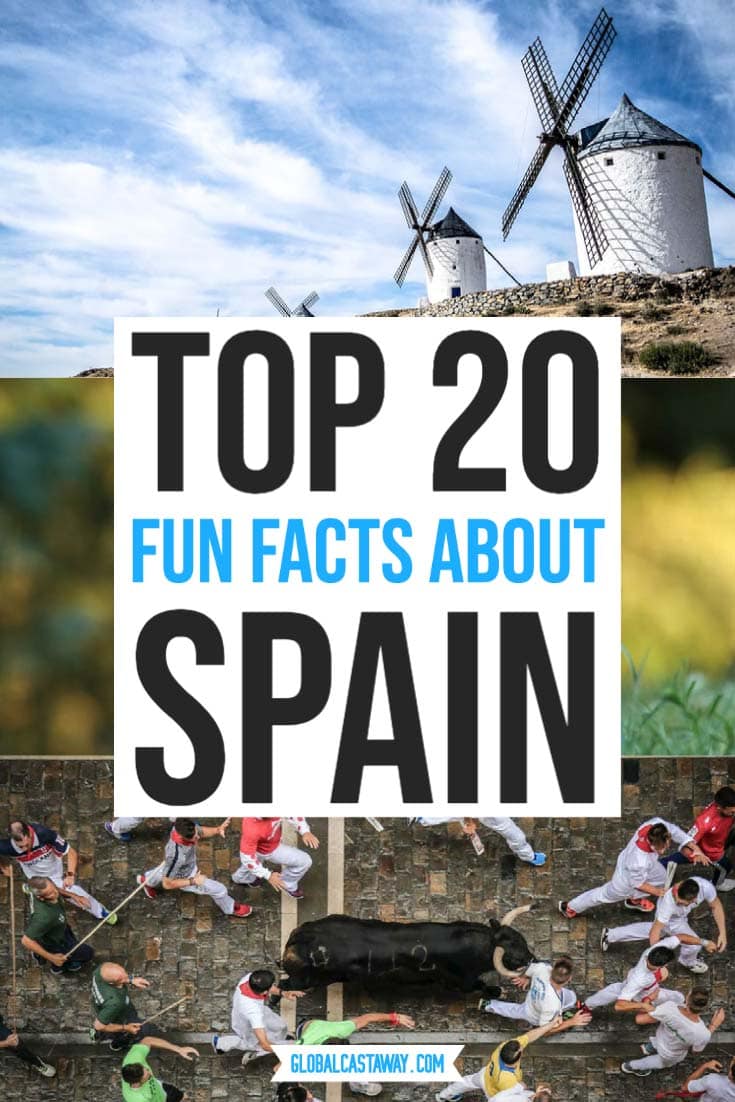
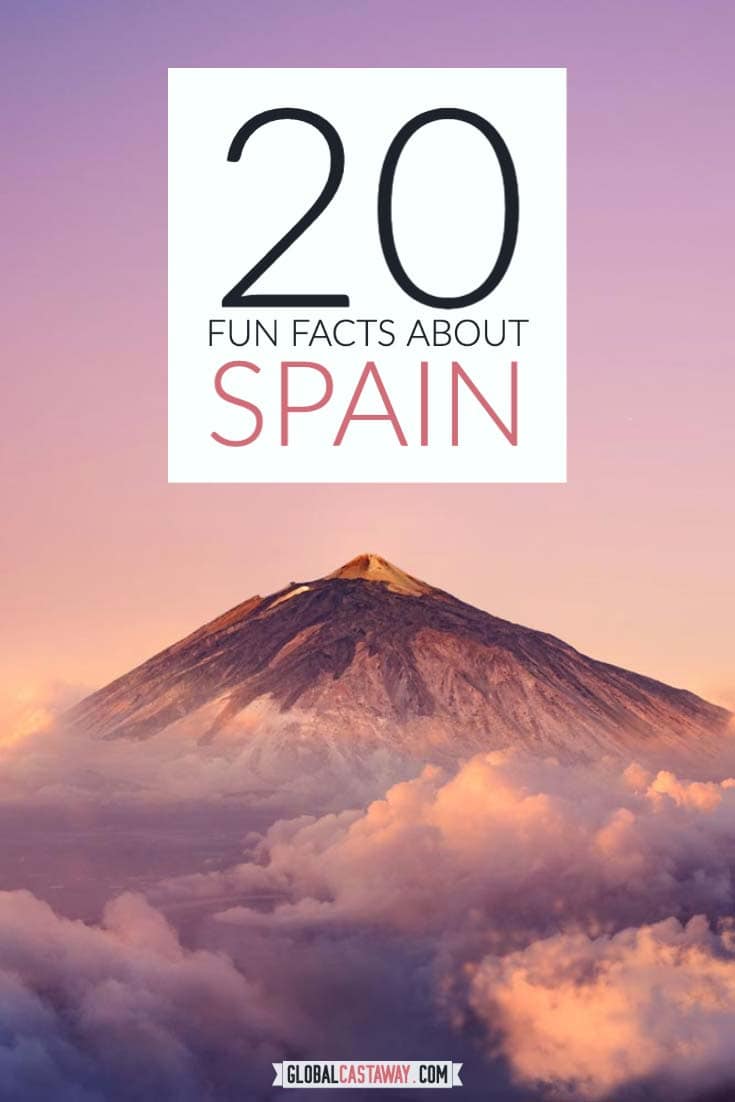

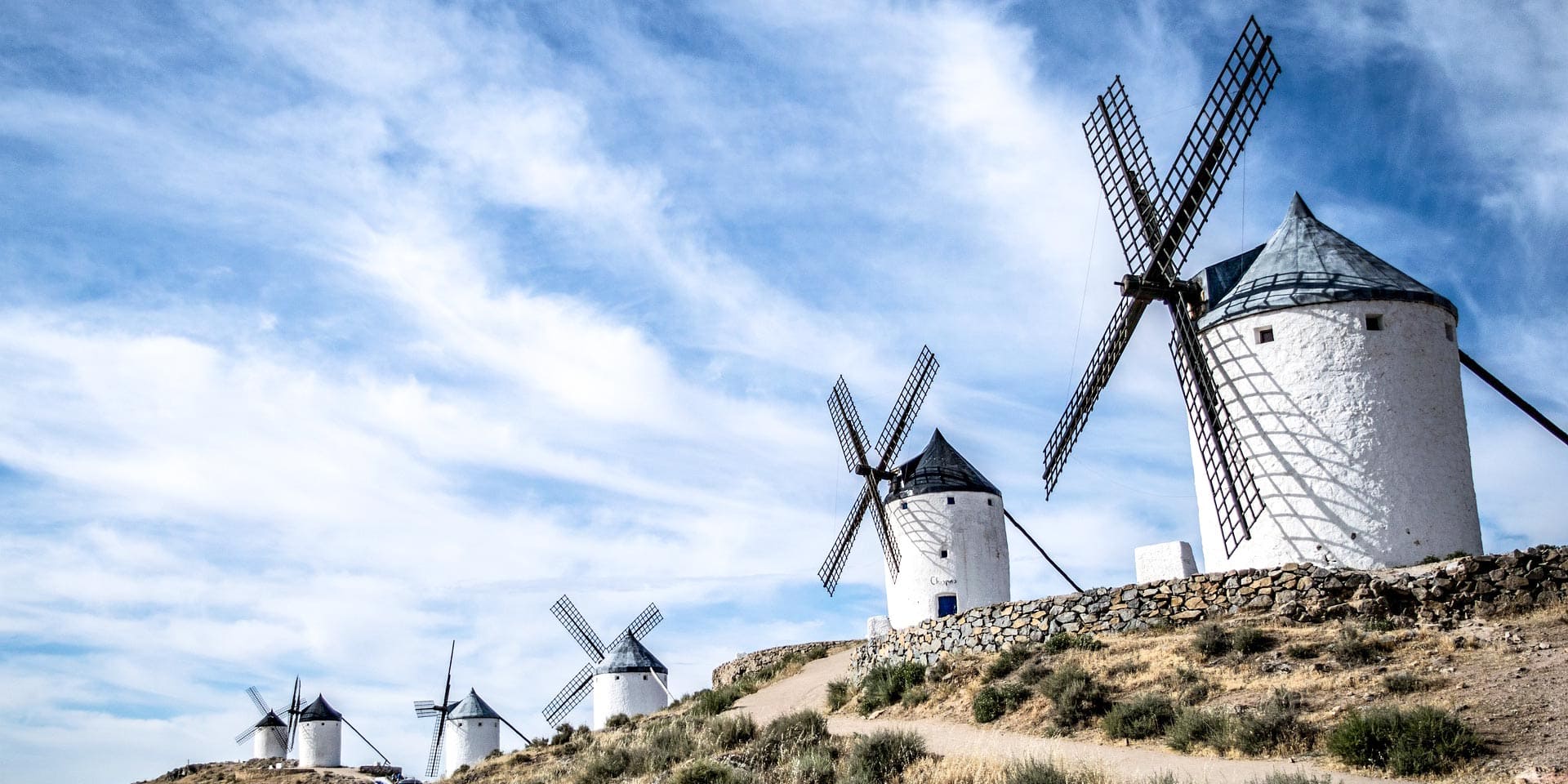
Pomegranate
Tuesday 16th of May 2023
Good work! This is helpful!
rachel propes
Thursday 18th of November 2021
thanks this helped me so much with my project
Lilly
Tuesday 7th of February 2023
@rachel propes, this helped me very super much bby!!! xoxo kisss and love!!!
Slavi
Sunday 21st of November 2021
Glad I can help, Rachel :)